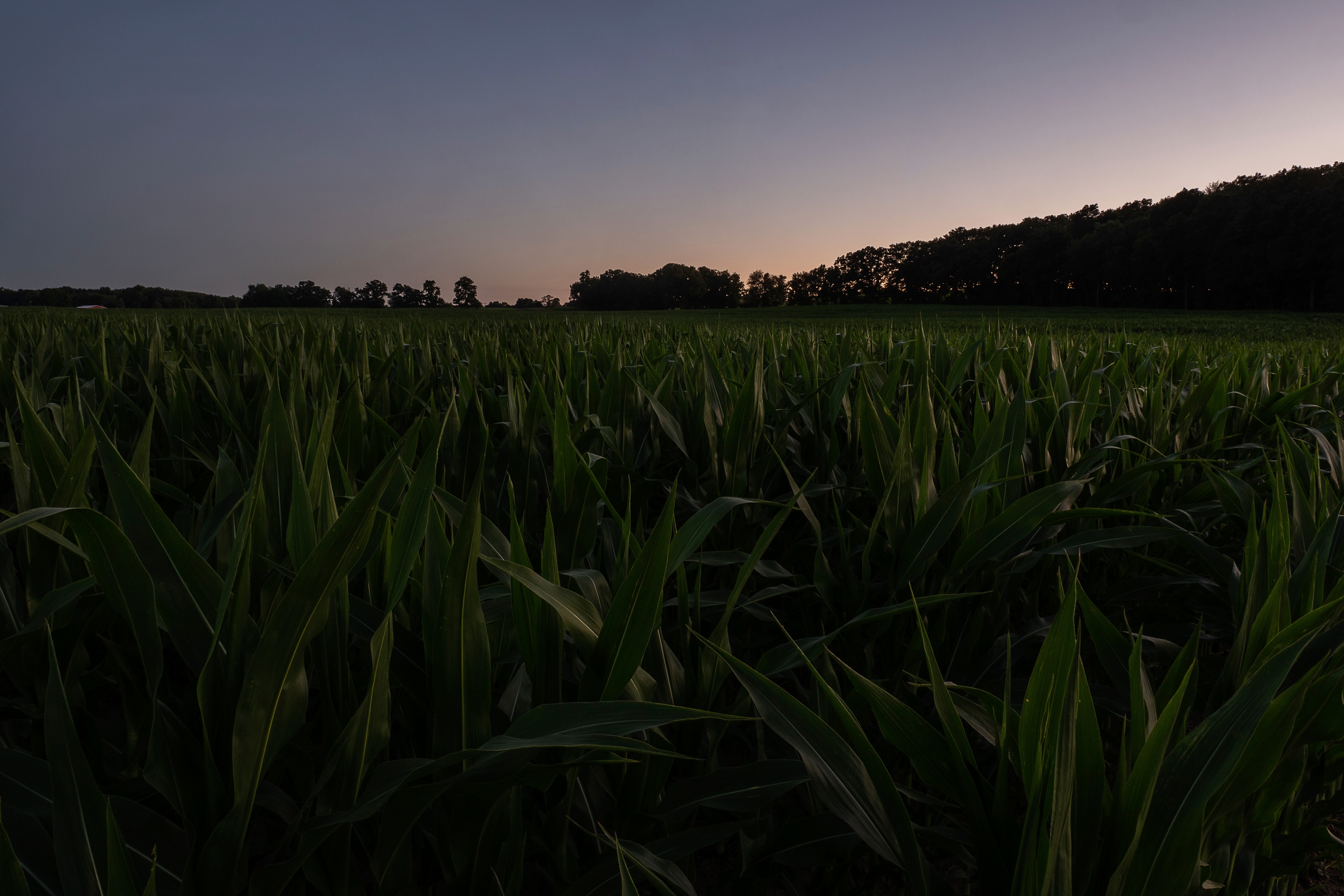Lucy and I drove out of the city, east on New Holland Ave and through the traffic lights to the outskirts, where we merged onto the highway. A few exits later, we got off, kept heading east, and soon the pavement and houses gave way to farmers’ fields, long stretches of corn and soybeans, and tobacco already cut and leaning in golden pyramids.
“These are the roads I grew up on,” I said quietly. “These are the miles where I rode my bike.” Lucy looked out over it all.
“It’s very pretty out here,” she said. She is a city girl now. She seems overwhelmed by the serenity of the countryside.
We turned onto the road that led to the farm where I grew up, the farm that sits across from the church and a graveyard and a winding creek (all of which are the backdrop to my first novel, The Day the Angels Fell). The road curved up towards the intermediate school I attended as a teen. We pulled into my uncle and aunt’s driveway and got out.
My uncle came over, joking that he was going to start charging me – it was the second time I’d been there in two weeks, an unusual occurrence. I told him, on the contrary, I thought he should give me frequent flyer miles. Lucy and I hugged him and then walked into the green green grass of their large backyard – the very place Maile and I had gotten married a little over 19 years ago.
We were there to see my dear cousin, visiting from Austin, Texas. And other family members trickled in as they could. Another uncle. Another aunt. Seven or eight cousins. One of my sisters. We sat and we laughed and we told all the old stories and listened to the new ones, knowing that a few of these were the epic tales we would retell the next time we saw each other.
There was only a small portion of us there on Wednesday night – my dad has seven brothers and sisters, and I think I have around 25 cousins on that side, most of whom are now married with kids of their own. But wherever two or three are gathered, you know, and all that.
At one point the sun was setting over the fields and a cool breeze was trying miserably to push away the heat, and I stood against the wooden rails of my uncle and aunt’s gazebo. Right there, Maile and I had said, “I do,” and all of these family members and more had been there with us, witnesses. They had seen us tie the knot. They had welcomed us home when we came back, tails between our legs, a failed business behind us. They had supported my new life as a writer, buying my books, giving me projects. They had celebrated with us as each of children were born, and they mourned with us when Maile miscarried a few days before Grandma Smucker’s funeral.
Lucy came over and stood beside me, grinning.
“What do you think of your wild extended Smucker family?” I said, taking a drink of ice water. She smiled again.
“It’s good.”
I nodded, looking out over the crowd. There are a lot of old aches and pains there, and fresh ones, too. My uncle nearly died in a motorcycle crash some years back, and his walk with its slight limp reminds me of this. Another uncle lost most of his pinky 25 years ago; of course, he just holds it up to his nostril now, scaring all the grandchildren, because it looks like his pinky is all the way up in his brain. Over 40 years ago tragedy took the life of one of my cousins before I was born, and that pain is mostly healed, but ever present. My grandmother died six years ago this fall. There is other deep sadness in our midst, some I’ve heard and some I’ll probably never know about, and struggles that would break my heart.
But there is happiness there, too, and so many years together. There are the new babies bounced on knees and the teenagers finding their way and my cousins now in their thirties and forties and dare I say fifties. Life goes on, and when I am there, among the fields where I grew up, I can feel my roots digging in, drawing from deep, deep wells.
“It is good,” I said, putting my arm around Lucy. “It’s a wealth beyond measure.”

